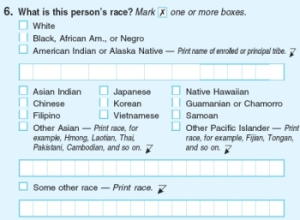Legal Anomalies in Federal Indian Law, Part I—Equal Protection
 Federal Indian Law—the legal provisions and doctrines governing the respective statuses of, and relations among, the federal, state, and tribal governments—is replete with seeming anomalies when compared to the background of typical domestic law in the United States. Such anomalies or aberrations, though frequently noted, have seldom if ever been systematically delineated in cases or in legal scholarship. The purpose of this and succeeding blog posts is to identify and examine several of these anomalies, the hope being that readers will gain a better sense of the unique topography of Federal Indian Law and at least some of the reasons that have brought it about.
Federal Indian Law—the legal provisions and doctrines governing the respective statuses of, and relations among, the federal, state, and tribal governments—is replete with seeming anomalies when compared to the background of typical domestic law in the United States. Such anomalies or aberrations, though frequently noted, have seldom if ever been systematically delineated in cases or in legal scholarship. The purpose of this and succeeding blog posts is to identify and examine several of these anomalies, the hope being that readers will gain a better sense of the unique topography of Federal Indian Law and at least some of the reasons that have brought it about.
Examined in this first post will be one such apparent anomaly, namely, the permissibility of the government’s differential treatment of Indian tribes and their members despite the U.S. Constitution’s guarantee of equal protection. This issue goes to the heart of Federal Indian Law, which is largely embodied as statutes in Title 25 of the U.S. Code (denominated “Indians”) and implemented through rules and regulations in Title 25 of the Code of Federal Regulations (also denominated “Indians”). To the extent that the classification of “Indian” ordinarily if not always includes a component of race, ethnicity, ancestry, or perhaps national origin, its use in the federal Code and Regulations—including its derivative use in judicial opinions—would seem presumptively to run afoul of constitutional as well as statutory proscriptions against discrimination on the basis of race, ethnicity, ancestry, and the like. After all, were one to encounter a Title of the U.S. Code designated “African Americans” or “Latinos” or “Germans,” an eyebrow, if not two, would almost certainly be raised in response.


